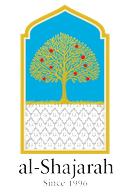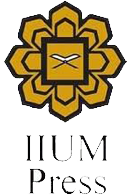TRANS-NATIONALISM AND CIVILISATIONAL IDENTITY: RUMI ON LAND, LANGUAGE AND LOVE
DOI:
https://doi.org/10.31436/shajarah.v28i1.1595Keywords:
Rumi, Mathnawi, Civilisational Identity, Nationalism, Trans-nationalism, Persianate, Persian, Najeeb Barwar, Zabihollah Behrouz, Dari, Farsi, TajikAbstract
In the twenty-first century, the eight-hundred-year-old teachings of a Muslim mystic-poet from West-Asia continues to inspire masses with the universal messages of liberty, love, and fraternity. Many of us can still read and enjoy Rumi’s appealing poems in the original Persian language without difficulty – a very rare accident in the arena of world literature! The transcendental meaning of ‘civilizational identity’ has an evident presence in Rumi’s poems, and his teachings are still relevant. This essay aims at presenting Rumi’s borderless mentality and inclusive approach, which is, in many instances, in contrast with the modern tendencies of fragmentation and exclusivism. The discussions begin with a short ‘Introduction’, followed by four main headings. ‘Civilisation, Imitation of Creation,’ provides a brief overview of the transformation of the meaning of ‘civilisation’ from the classical period to the modern times. It also emphasises on the less visible yet essential role of art and literature in the formation of civilisational identity. ‘Rise of Nationalism as Independent Identity’ touches upon the establishment of nation-states, followed by an elaboration of the positive and negative aspects of ‘Nationalism’ as a recent development in human history. ‘Trans-National Identity of Liberated Souls’ offers a bird’s-eye-view of Rumi’s life across various lands. It introduces Persianate culture as medium of connection of many nations, and showcases Rumi, through his writings, as a borderless, nationless, profound, inclusive, translucent, and love-oriented intellectual. ‘Language: Facilitator or Barrier’ focuses on the idea of communication at two levels: speechless communication and communication via tongue, referring to the esoteric and exoteric aspects of expression. Under this heading we shall also see how a shared language of a few countries – that has been a uniting factor in the history – can become a dividing factor when different ‘name-stickers’ are adopted to accomplish political agendas under the banner of nationalism. And finally, under ‘Conclusion,’ a concise summary of the paper is provided. The essay is complemented by relevant couplets by Rumi and two contemporary poets from Iran and Afghanistan. Fresh English translations of the couplets are provided.



 Al-Shajarah:
Al-Shajarah: 
